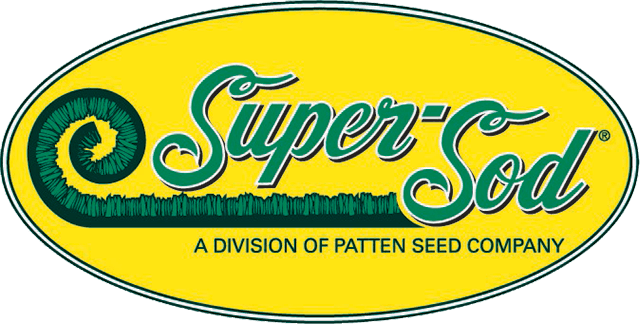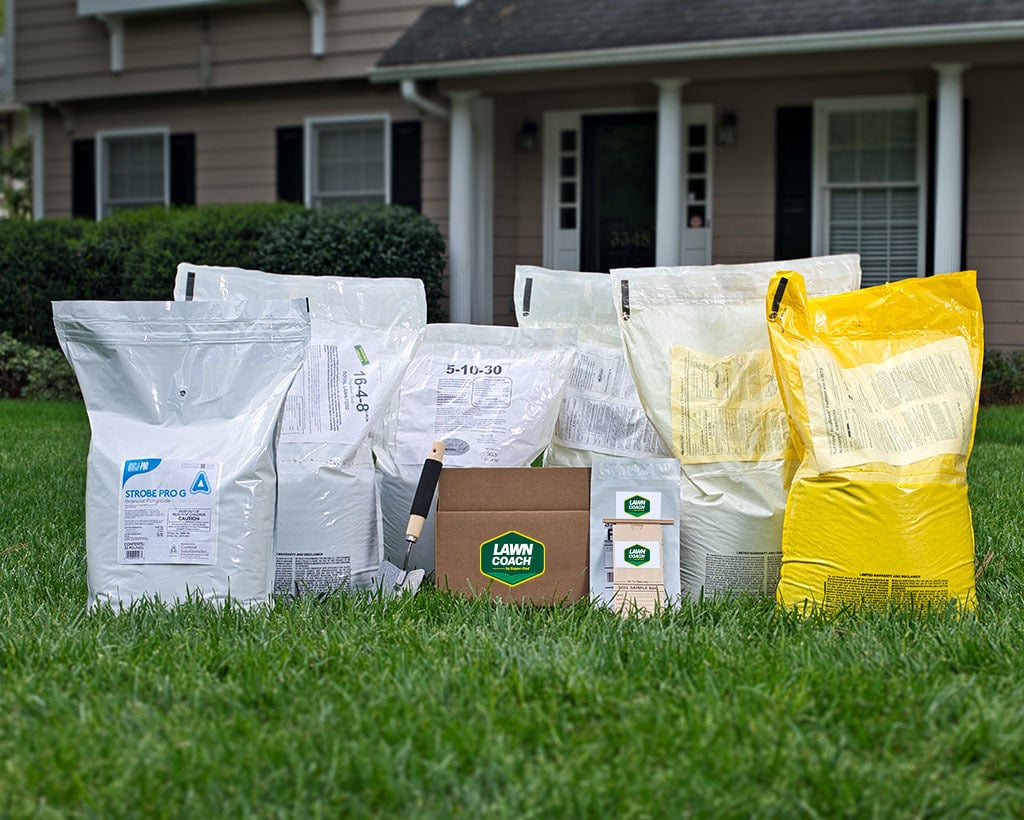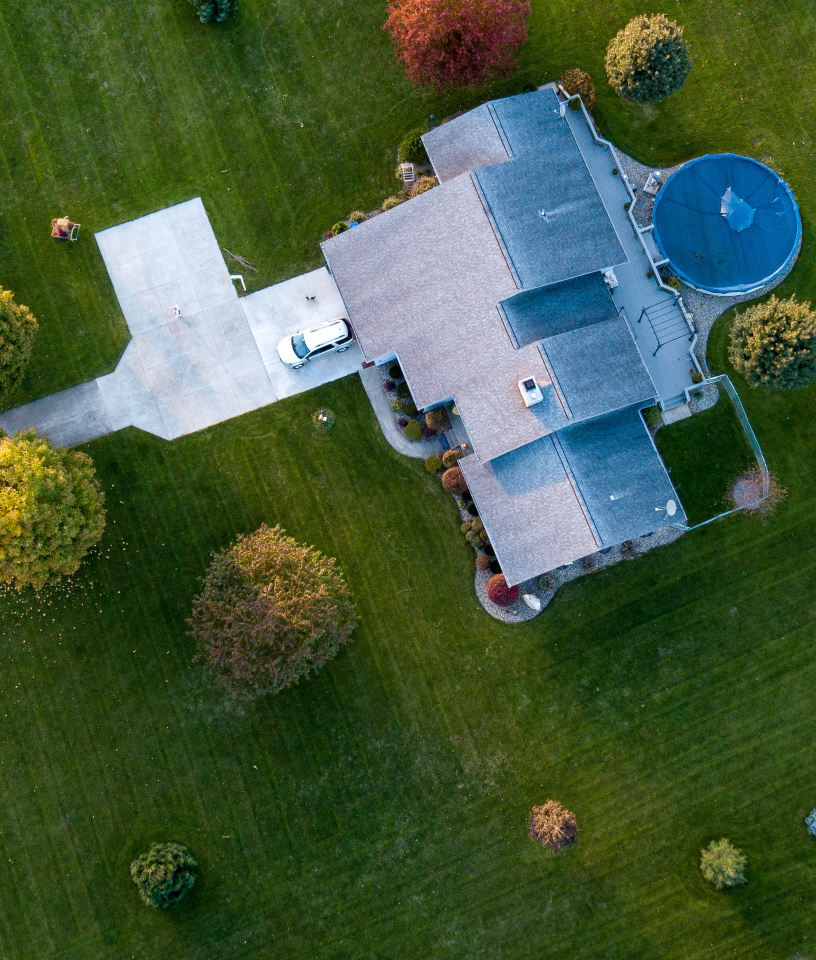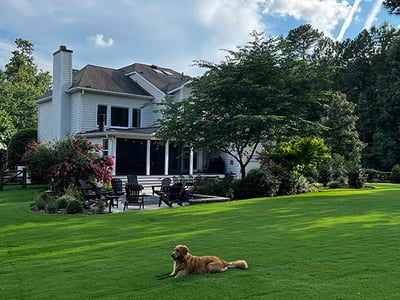

🍁 Get out your rake because leaves are gently tumbling from trees and piling up on lawns. Remove those pretty fall leaves from your warm-season lawn so they don't smother it. This time of year, I'm out there every few days blowing them off before many accumulate. It's a good way to get your steps in!
Notes on Irrigating Warm-Season Lawns in Autumn: Yep, irrigation at this time of year. It's been very dry in many areas of the South. If that's true for you and your garden, your warm-season lawn may still need some watering to keep it healthy, even though Bermuda, Zoysia, and Centipede lawns are going dormant or about to go dormant. A time like this is when you need to become a lawn whisperer by observing your lawn's needs. Here are nuances to consider:
- If you have great soil and your turf has deep roots, you may need to provide very little (or no) supplemental watering because the evapotranspiration rate (water loss from leaves) is so low due to the mild temperatures. Just keep an eye on it.
- If your established lawn shows signs of drought stress, by all means, get out the sprinkler or turn on your irrigation. This is especially true in warmer areas where warm-season lawns go dormant later in the season.
- Keep in mind when you're assessing for watering, that your lawn may have a half-asleep look that is merely your lawn going dormant - like in the picture below. Don't worry, it's normal for your warm-season lawn to start to turn brown and go dormant during this time of year, especially if you get frosts that settle on it.
- Always keep new lawns watered until roots form. It's especially critical during a drought, when no water is provided from the heavens.
🚰 A word about sprinklers/spigots and freezing temperatures: Depending on your sprinkler type and the degree of frost, you may need to drain and unhook it to prevent it from bursting. A hard freeze lasting for hours at or below 28 degrees can damage spigots, hoses, hose-end sprinklers, and hand sprayers. Avoid having to fix or replace them by reading our irrigation winterizing tips How to Winterize Your Irrigation.
This new sod is going dormant in the fall. Don't worry if you laid new sod and see the same thing—it's perfectly normal for this time of year, and it will green up in the spring.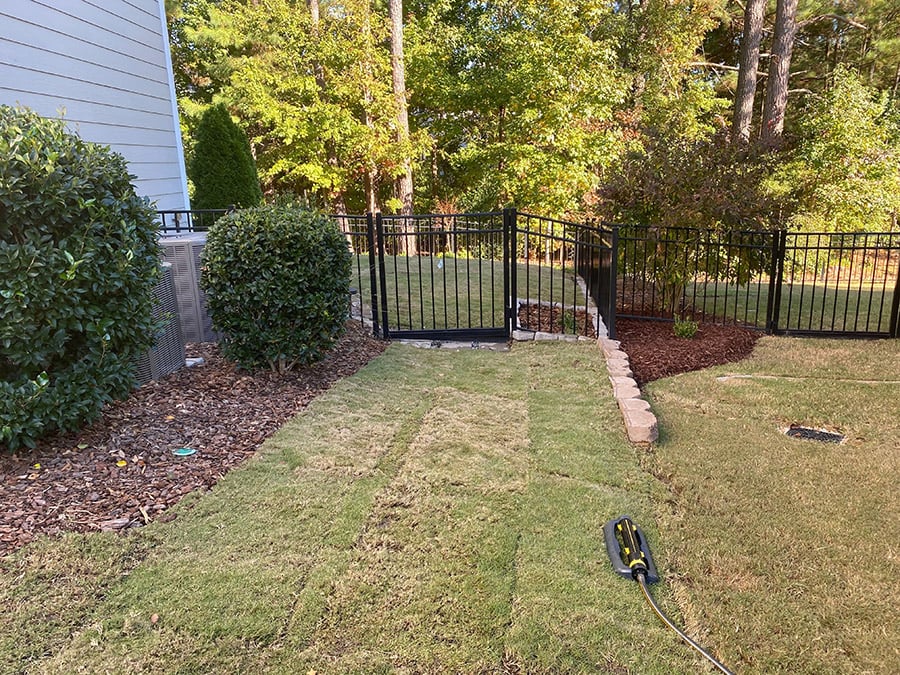
Jack Frost Trails
Let me introduce you to Jack Frost trails, a normal phenomenon this time of year. These trails pose no problem for your lawn; rather, they are fascinating patterns left behind as cool air settles on ground that is still warm. To learn more about how Jack Frost trails happen, here's our article on Jack Frost Trails in Lawns.
Picture of Jack Frost trails at the store at our Charlotte, NC store.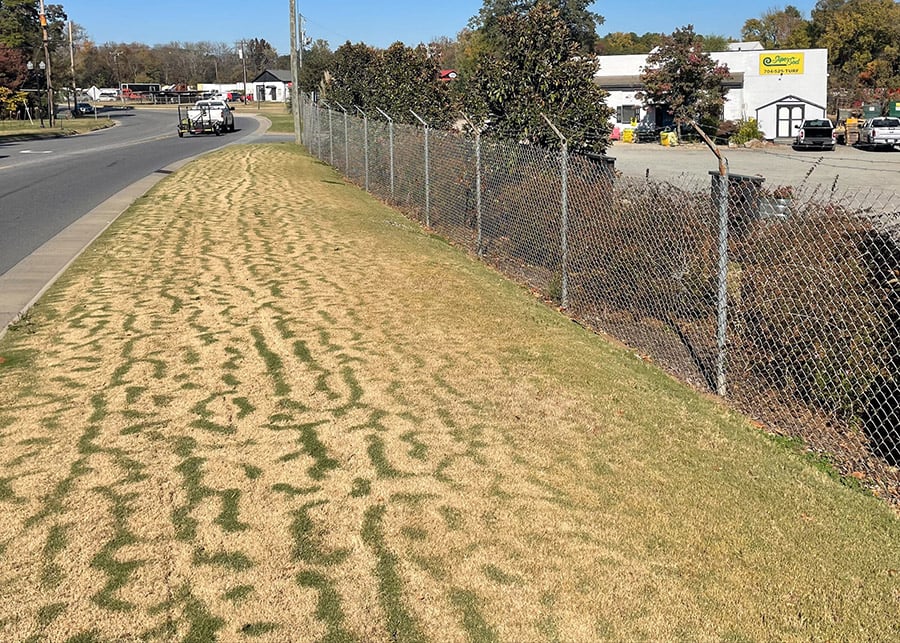
Fall Fungicide Application
If you haven't done so already, warm season lawns get an application of fungicide in the fall (once soil temps lower to 70 degrees) to help reduce the possibility of Large Patch. Remember an ounce of prevention in the fall is cheaper and easier than curing Large Patch in the spring!
Fall Armyworms
Threat Downgraded Due to Frosts in Some AreasExcept in coastal and urban areas in zone 8 and warmer, many rural areas in zone 7 and cooler received a couple of frosts, so Fall Armyworms are less of an issue. If you're in a warmer, frost-free area, continue to watch for signs and symptoms. If you flush them out with a soap test, you can order lawn insecticide from us.
Order 5-10-30 with Acelepryn for pick up or delivery, or check out our Champ Lawn Coach subscription, where we'll send it to you every year.
Fertilizing Tips
- Don't fertilize! Do not fertilize, topdress, or aerate warm-season lawns anytime in the fall; wait until spring. Let your lawn go dormant. High nitrogen promotes tender new growth that can be damaged by frosts, so don't use high nitrogen fertilizers and save yourself the fright.
- Learn why Winterizers are not the best solution for lawns (and how they might actually damage them) in our latest blog, "Does Your Lawn Need Winterizer Weed & Feed, or Not?"
Weeding Tips
- Right now, the best method to combat weeds is to mow them before they go to seed. Mowing is an effective way to suppress weeds because it cuts off flower/seed heads, which stops weeds from producing more weeds, thus breaking the life cycle. If you have bad weeds, mow regularly so they don't produce seeds.
- The window for applying pre-emergent herbicide is closed for the autumn. The next window will open in February when the Forsythia bushes flower - we'll send out an email alert at that time. Now is the time for post-emergent herbicides for weeds you can see now on all established lawns.
- For weeds you see now in established lawns, apply post-emergent liquid herbicides directly to the weeds. (As always, read the herbicide label to make sure it's safe for your type of lawn and targets your particular weeds, then carefully follow the application instructions.)
👍 Rule of Thumb: It's okay to apply a post-emergent liquid herbicide after you've mowed your new lawn 3 to 4 times. - Pulling by Hand: If some weeds have escaped your pre-emergent routine and regular mowing, we recommend hand pulling to build up arm strength for cooking that big Thanksgiving meal.
- Mulch suppresses weed seeds in flower beds. Spread your favorite mulch 2-4" thick and keep it 1-2" away from touching the trunks or stems of your plants.
Mowing Tips
- Continue to mow warm-season lawns at the recommended height for your type of lawn until it goes dormant. It's critical to keep up this practice to prevent leggy growth so that your lawn looks great next spring.
Come back next month for December's Lawn Tips for Warm-Season lawns!
Got questions? Leave a comment below.
If you have a Tall Fescue lawn (the best cool season lawn for the Southeast), here are your lawn tips for November.
Are you new here? Please subscribe to our emails to get this information in your inbox every month.
